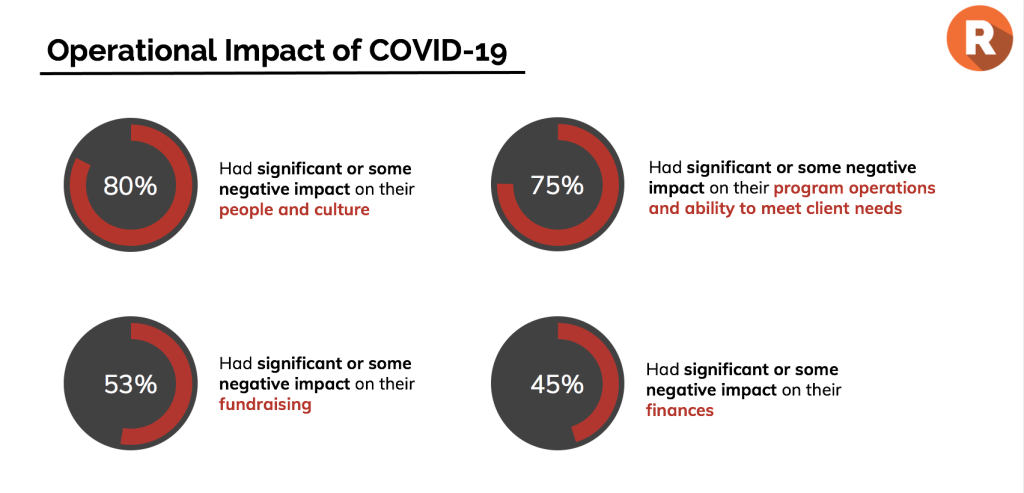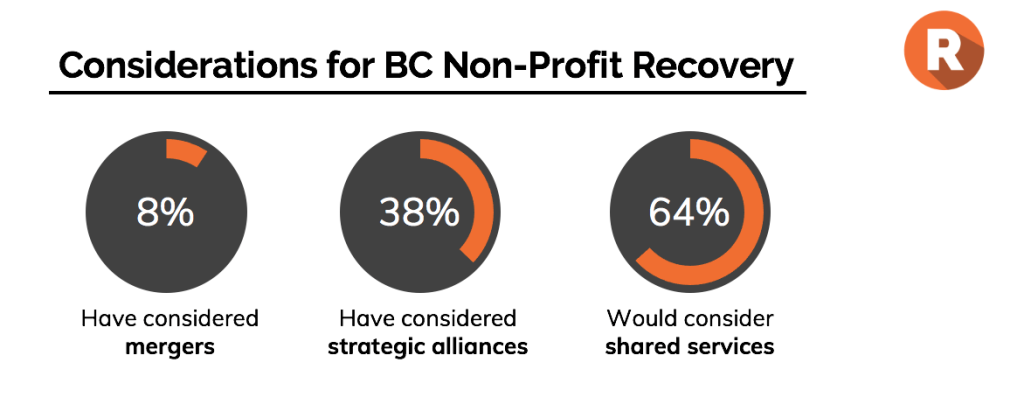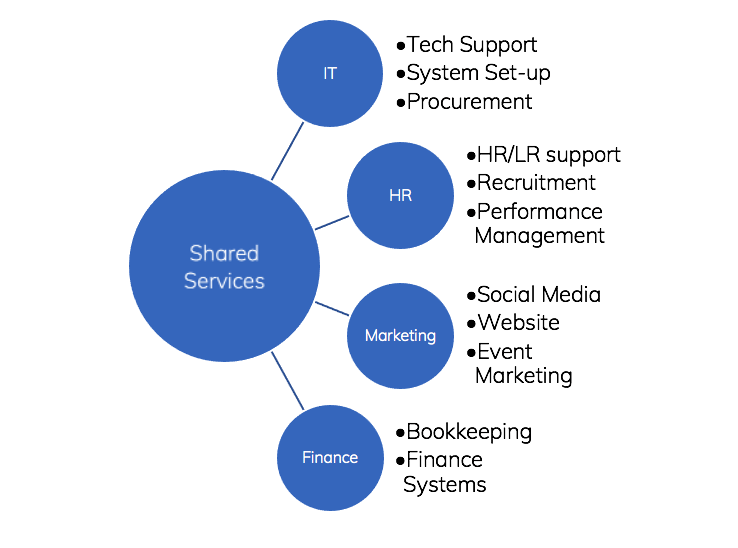Shared Services: A Solution for BC Non-Profit COVID-19 Recovery
Published on May 17, 2021
In March, we heard from 84 non-profit leaders across BC to learn about how COVID-19 has impacted them and what their priorities are for recovery in 2021 and beyond.
The survey revealed that the operational areas where COVID-19 had the most negative impact on were people and culture (80%), program operations and ability meeting client needs (75%), fundraising (53%), and finance (45%). In particular, the issues of decreased staff capacity and high levels of stress and burnout were compounded by an increased service demand for many organizations.

When asked what recovery options they had considered, only 8% of participant organizations had considered mergers, 38% had considered strategic alliances, but 64% had considered shared services.

It is estimated that over 80% of Fortune 500 companies have implemented some form of shared services. Given the disruption from COVID-19, a shared services model could support non-profit recovery and strengthen the non-profit sector overall.
Understanding shared services
Shared service models have a central organization providing strategic and transactional Finance, HR, IT, and other core business function support. The shared services model can add tremendous value to participating organizations such as greater operational efficiency and effectiveness, reduced costs, and more.
Social Venture Partners has researched best practices for shared services in non-profits and notes that core business functions are under-resourced in non-profits and can lead to:
- Inefficiency, burnout, and increased turnover
- Cash flow crises and loss of funding
- Missed opportunities and diminished impact
- Threats to growth and sustainability
Sharing services can help offset the above issues, but the guiding principle is that shared services allow more for the same rather than the same for less.
Benefits of shared services
The Non-Profit Centres Network has outlined 5 main benefits of shared services:
- Purchasing Power
- Efficiency
- Quality Resources
- Employee Retention
- Stability and Investment
We met with a small group of interested participants from our Non-Profit Survey and eight of those leaders have had previous experience with shared services. Their experiences aligned with the five benefits noted above. Benefits that these leaders and their organizations had experienced first hand included: lowered insurance costs, accessing social media support they couldn’t afford as a single organization, ability to purchase technology at wholesale prices, sharing costly systems (e.g., case management), and pooling their resources together to develop staff training curriculum.
Shared services – areas of interest
The areas BC non-profits were most interested in shared services for were:

Connect with like-minded organizations
We are always looking to bring different people and organizations together, particularly when it can positively impact purpose-driven organizations. If you are interested in shared services and being connected with other interested non-profits, please reach out to us.
Contributors




